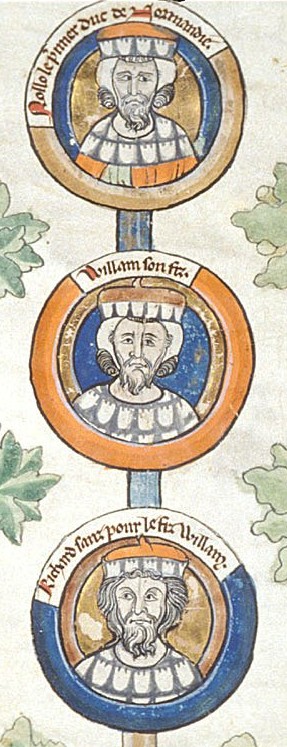Norman Conquest
Norman Conquest
The Norman Conquest refers to the invasion and occupation of England in the 11th century by an army of Norman, Breton, and French soldiers led by Duke William II of Normandy, later known as William the Conqueror. This pivotal event in English history began in 1066 and culminated in the decisive Battle of Hastings on October 14, where King Harold Godwinson of England was defeated. The conquest led to significant changes in the English culture, language, government, and aristocracy, with lasting effects that have shaped the nation's identity.
Background[edit | edit source]
The roots of the Norman Conquest can be traced back to the complex web of feudal loyalties and the Viking Age. England had experienced Viking invasions and settlements for centuries, leading to a mixed Anglo-Saxon and Scandinavian culture in some regions. The Normans, descendants of Vikings who settled in what is now Normandy in France, inherited both Viking and Frankish traditions. The claim of William the Conqueror to the English throne was based on a supposed promise made by the childless English king, Edward the Confessor, and a controversial oath allegedly sworn by Harold Godwinson during a visit to Normandy.
The Invasion[edit | edit source]
In January 1066, Edward the Confessor died, and Harold Godwinson was crowned king of England. William, considering this a breach of his agreement with Harold and an usurpation of his rightful claim, sought and received papal support for a military expedition to conquer England. The Norman fleet set sail in September 1066, landing in southern England. The decisive moment came at the Battle of Hastings, where Harold's forces were defeated. William's victory was not just a military triumph but also a demonstration of Norman military innovation and strategy.
Aftermath[edit | edit source]
Following his victory at Hastings, William faced several years of resistance and rebellion across England but ultimately established firm control. He was crowned king of England on Christmas Day 1066. The Norman Conquest brought about profound changes, including the introduction of the feudal system, a reorganization of the English Church, and the replacement of the Anglo-Saxon elite with Norman and French nobles. The Domesday Book, a great survey ordered by William in 1086, is a crucial source for understanding the period.
The conquest also had a lasting impact on the English language, introducing thousands of Norman and French words that are still in use today. This linguistic blend transformed Old English into Middle English, significantly enriching its vocabulary and complexity.
Legacy[edit | edit source]
The Norman Conquest is a watershed in English history, marking the beginning of a new era. It linked England more closely with Continental Europe through its Norman and French connections, influencing the political, cultural, and social landscape. The conquest's legacy is evident in the English legal system, language, and architecture, with the Norman castles and cathedrals dotting the landscape serving as enduring symbols of this transformative period.
Search WikiMD
Ad.Tired of being Overweight? Try W8MD's physician weight loss program.
Semaglutide (Ozempic / Wegovy and Tirzepatide (Mounjaro / Zepbound) available.
Advertise on WikiMD
|
WikiMD's Wellness Encyclopedia |
| Let Food Be Thy Medicine Medicine Thy Food - Hippocrates |
Translate this page: - East Asian
中文,
日本,
한국어,
South Asian
हिन्दी,
தமிழ்,
తెలుగు,
Urdu,
ಕನ್ನಡ,
Southeast Asian
Indonesian,
Vietnamese,
Thai,
မြန်မာဘာသာ,
বাংলা
European
español,
Deutsch,
français,
Greek,
português do Brasil,
polski,
română,
русский,
Nederlands,
norsk,
svenska,
suomi,
Italian
Middle Eastern & African
عربى,
Turkish,
Persian,
Hebrew,
Afrikaans,
isiZulu,
Kiswahili,
Other
Bulgarian,
Hungarian,
Czech,
Swedish,
മലയാളം,
मराठी,
ਪੰਜਾਬੀ,
ગુજરાતી,
Portuguese,
Ukrainian
Medical Disclaimer: WikiMD is not a substitute for professional medical advice. The information on WikiMD is provided as an information resource only, may be incorrect, outdated or misleading, and is not to be used or relied on for any diagnostic or treatment purposes. Please consult your health care provider before making any healthcare decisions or for guidance about a specific medical condition. WikiMD expressly disclaims responsibility, and shall have no liability, for any damages, loss, injury, or liability whatsoever suffered as a result of your reliance on the information contained in this site. By visiting this site you agree to the foregoing terms and conditions, which may from time to time be changed or supplemented by WikiMD. If you do not agree to the foregoing terms and conditions, you should not enter or use this site. See full disclaimer.
Credits:Most images are courtesy of Wikimedia commons, and templates, categories Wikipedia, licensed under CC BY SA or similar.
Contributors: Prab R. Tumpati, MD





